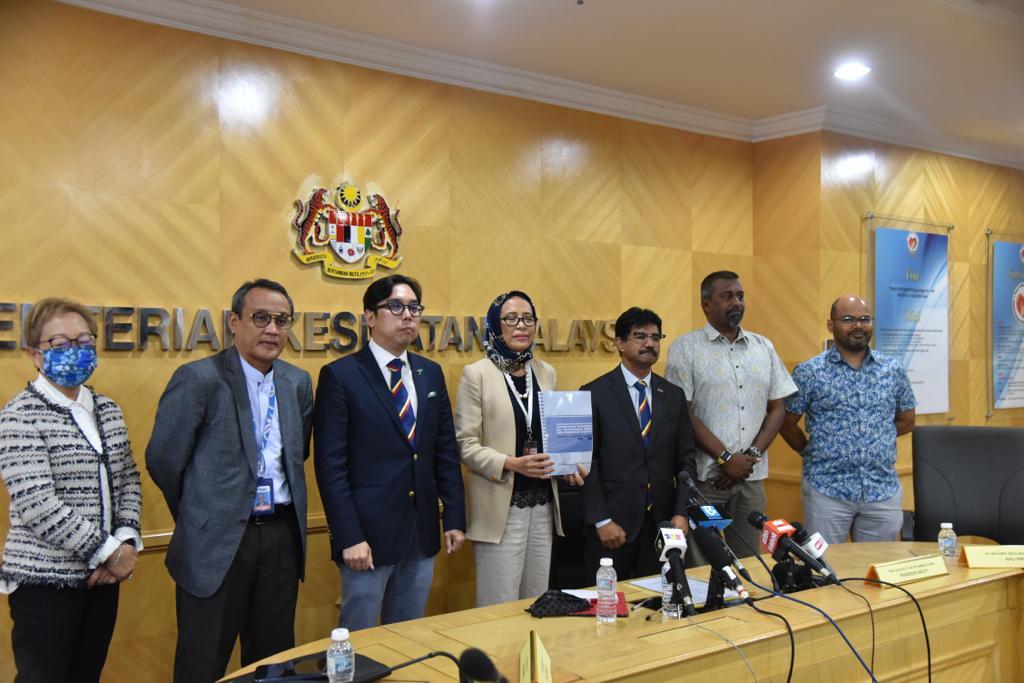KUALA LUMPUR, June 19 – An independent task force – the Healthcare Work Culture Improvement Task Force (HWCTIF) – was formed after the death of a houseman at Penang Hospital about a year ago in April 2022.
The HWCITF released a 162-page report last August. Although the task force did not find strong evidence to link the house officer’s death to workplace bullying, the HWCITF made several recommendations to curb bullying and to improve the Ministry of Health’s (MOH) internal complaints mechanism and counselling services.
Interestingly, the HWCITF found that house officers “face more pressure from negative perceptions when they obtain psychiatric services.”
Since then, two sudden deaths, believed to be from suspected suicide, involving health care workers in Klang, Selangor, were reported this month – just two days apart.
The first incident occurred on June 4, involving a health care worker who had served at a health care facility in Klang, Selangor. Just two days later, police confirmed the death of another health care worker who worked at a separate public health clinic in Klang, who was found deceased by her husband at their residence in Shah Alam.
The latter was a 32-year-old female doctor who was four months pregnant.
Health Minister Dr Zaliha Mustafa, in a brief comment to reporters at an event today, said current measures – the Heal 15555 hotline and counselling services at public hospitals – sufficed, but they could be improved if necessary.
“Once the police investigation is concluded, the Ministry of Health will also conduct a detailed inquiry regarding this case,” she said.
In a statement Saturday, the Selangor state health department (JKNS) said it received separate reports on the sudden deaths of two health care workers who had served at two different health care facilities in the district of Klang last June 4 and June 6.
Selangor state health director Dr Sha’ari Ngadiman said the state health department has initiated internal investigations into both cases, and the police are also conducting separate investigations to determine the causes of the deaths.
JKNS reminded individuals who are experiencing emotional difficulties to seek assistance and emotional support from professionals or contact the Mental Health Crisis Helpline, or HEAL Line at 15555, operated by a psychological counselling officer under the MOH, available everyday from 9am to 12am (midnight).
In a separate statement yesterday on the death of the pregnant medical officer, Shah Alam district chief police Mohd Iqbal Ibrahim said a police report was filed by the Shah Alam district police headquarters last June 5 at approximately 8.55pm, following an emergency call from the deceased’s husband. A post-mortem was conducted the following day on June 6.
The twin statements from JKNS and the Shah Alam district police chief were issued more than a week after both incidents took place, primarily in response to a post by Twitter user @maddieness, who posted about a 20-week pregnant medical officer at Klinik Kesihatan Kapar who had died from suicide.
According to the Malaysian Medical Council’s (MMC) registry, the female doctor in the second sudden death case had been working at Klinik Kesihatan Kapar since 2021 and was serving in the government clinic’s outpatient department.
The MMC’s registry only reveals the most recent three years of the Annual Practising Certificate (APC). CodeBlue is withholding the name of the doctor.
“I believe there are currently near misses,” a medical officer in primary care told CodeBlue today.
The medical officer – who claimed to have personally stopped two house officers from committing suicide about a decade ago when he was working at a government specialist hospital in a suburban area – said self-harm intentions were prevalent then.
“I’m quite sure it’s becoming worse now. That was at the time when they had permanent jobs. Now, without permanent jobs, a grey future, and even with the prospect of not being able to specialise, tensions may be more.”
The medical officer said stigma against mental health persists in the public health service. Hence, health care professionals are discouraged from being open about their psychological problems.
“They may want to pursue a career in a particular department, but they get transferred to a less stressful department [because of their mental health issues],” he said.
“Some have aspirations to be specialists or consultants, but in that particular place where they’re put in because of their issues, they can’t progress in their career. So a lot of them choose to swallow the bitter pill.
“But not everybody is resilient enough to see it through.”
The two sudden deaths of health care workers in Selangor this month occurred just a year after a house officer attached to Penang Hospital fell to his death. The Penang General Hospital houseman’s death, which garnered significant attention, led to the establishment of the HWCITF under then-Health Minister Khairy Jamaluddin.
This task force was specifically designed to address the mental health needs of health care workers. It launched a survey in May last year for health care professionals in the public sector on their work environment, including workplace harassment and bullying.
The findings of the independent committee’s survey across the Ministry of Health’s (MOH) entire workforce, with medical practitioners comprising less than a quarter of participants, showed that of the 20,633 respondents from the management or supervisory level, 4,692 (about 23 per cent) admitted to acts of bullying in their workplace.
CodeBlue also ran a poll earlier this year among over 1,600 government health care workers that revealed 95 per cent believe Malaysia’s public health care system is currently in crisis, 98 per cent are angry at the situation, 73 per cent are thinking of quitting their job, and 52 per cent are willing to go on strike if one is organised.
An MOH pharmacist, who was among the 1,652 respondents of CodeBlue’s poll, highlighted the lack of mental health protection for government health care professionals and workers.
The pharmacy officer claimed that when they themselves sought help from their superior for insomnia and panic attacks due to their workplace environment, the superior told them to see a counsellor first. “We try to keep things under the table because the moment you have a history of psychiatric visits and everything, it won’t look good on you,” the pharmacy officer quoted their superior as saying.








